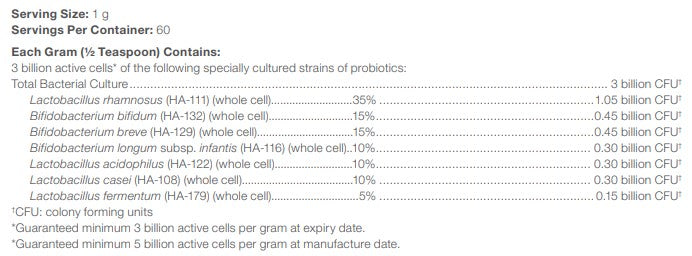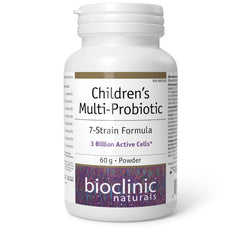



Children's Multi Probiotic
- 29.99$
0.00$- 29.99$
- Unit price
- per
Description
x- Contains a probiotic blend of seven species of Lactobacillus and Bifidobacterium, which are associated with a healthy gut microbiome during childhood.
- Provides a guaranteed minimum of 3 billion active cells per serving.
- The powder is easy to dose and mix with other foods/drinks.
- No added flavors, colors or sugars; gluten-free
Children's Multi-Probiotic provides a clinical dose of seven Lactobacillus and Bifidobacterium probiotic species associated with healthy gastrointestinal function and the natural microbiome established during childhood. A healthy microbiota has been linked to a wide range of beneficial functions, including modulation of the immune system, improved response to vaccination, improved health of cells lining the gastrointestinal tract and gastrointestinal barrier, and resistance to pathogenic bacterial species. Many of the beneficial effects of a healthy microbiota have been attributed to its metabolites, such as short-chain fatty acids (SCFAs) and bile acids, which have both local and systemic effects.
The species in Children's Multi-Probiotic have been shown to have several specific benefits. For example, Bifidobacterium longum subspecies infantis has been described as a "champion of infant gut colonization," linked to decreased inflammation and a better response to vaccines. A meta-analysis suggests that Lactobacillus fermentum may be the most effective species for reducing the severity of atopic dermatitis in children. Similarly, several Lactobacillus and Bifidobacterium species, particularly L. casei, reduce the risk of developing C. difficile-associated diarrhea after antibiotic use. Several large meta-analyses have also found a significant reduction in respiratory tract infections in children supplemented with probiotics.
Produits recommandés
Produits récemment consultés
- Choosing a selection results in a full page refresh.



